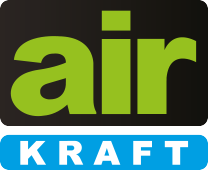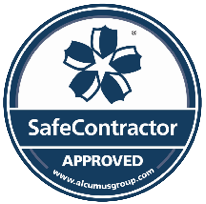Some filters are highly effective at removing oil aerosols, but they may not be designed to capture dust and solid particles
Dryers & Filters
Compressed air systems are vulnerable to contaminants like dirt, moisture, oil, and particulates, which can cause corrosion, inefficiencies, and equipment damage. Effective air treatment solutions, such as filtration, dryers, and water separators, help maintain clean, dry air and ensure compliance with ISO 8573-1 standards. Protect your system and prevent costly downtime with expert guidance from Air Kraft.

Understanding Contaminants in Compressed Air Systems
The journey of compressed air begins with the surrounding ambient air, which, in industrial environments, can contain over 140 million tiny dirt particles per cubic meter. As this air undergoes compression, these contaminants become more concentrated - the higher the pressure, the greater the particle density. Unfortunately, most airborne contaminants are microscopic, often smaller than two microns, making standard inlet filters only about 20% effective at removing them.

Moisture, Water Vapor, and Condensation
Another major factor affecting compressed air quality is moisture. Naturally present in ambient air, water vapor enters the compressed air system and condenses as the air cools. In fact, moisture is the most abundant contaminant in compressed air and contributes significantly to system contamination.
A key measurement for monitoring moisture levels is the dew point, which indicates the temperature at which air can no longer retain water vapor before condensation begins. When excessive moisture builds up in the system, it can lead to performance issues, corrosion, and damage to downstream equipment.

Atmospheric Contaminants: Oil and Hydrocarbons
Beyond dirt and moisture, compressed air can also contain oil and hydrocarbons drawn in from the surrounding environment. This is especially common in urban and industrial areas, where fossil fuel combustion releases hydrocarbon particles into the air. When these substances cool and condense within the compressed air system, they contribute to contamination, regardless of the type of compressor used.

Internal Contaminants: Oil from the Compression Process
Another potential source of oil contamination comes directly from the compressor itself. Many air compressors use oil for lubrication, and in some cases, traces of this lubricant can enter the air supply. This type of contamination, known as a compression contaminant, can negatively impact air purity and downstream equipment performance.

Distribution System Contaminants
Even after air has been compressed and processed, contaminants can still enter the system through the distribution network. Rust, scale, and debris from aging pipelines can break loose and travel through the compressed air stream, further compromising air quality and potentially causing damage to machinery or end-use applications.

Protecting Your Compressed Air System from Contaminants
The good news? With the right air treatment solutions, you can effectively safeguard your compressed air system from harmful contaminants. Let’s explore the key treatment methods available to maintain clean, high-quality compressed air.
Filtration: Targeting Specific Contaminants
Installing filters at strategic points throughout the compressed air system is essential for contaminant removal. However, it’s important to choose the right type of filter for the specific impurities in your system. For example:
Selecting the appropriate filtration solution ensures optimal air purity and system efficiency.
Moisture Control: Dryers, Aftercoolers, and Water Separators
Managing moisture is another crucial aspect of compressed air treatment. Excess humidity can lead to corrosion, bacterial growth, and system inefficiencies. To combat this, several moisture-removal technologies are available:
By implementing the right combination of filters, dryers, and aftercoolers, you can maintain a clean, dry, and efficient compressed air system - protecting equipment, improving performance, and ensuring compliance with industry standards.
How to Determine Your Compressed Air Quality Needs
To maintain optimal air quality, compressed air users should:
-
Identify Contaminants: Understand which contaminants, oil, moisture, or particulates pose the biggest risk to your operations.
2. Assess ISO 8573-1 Standards: Determine the required air purity class based on industry guidelines, or production machinery manufacturers recommendations.
3. Implement Proper Filtration & Drying Systems: Use the right combination of Atlas Copco filters, dryers, and separators to achieve the necessary air quality.
4. Regularly Monitor & Maintain Equipment: Routine air quality testing ensures compliance and prevents unexpected system failures.
The Bottom Line: Air Quality Affects Productivity and Compliance
By understanding and managing compressed air quality, businesses can enhance productivity, extend equipment lifespan, and ensure compliance with industry regulations. Investing in the right air treatment solutions is not just a best practice, it’s a necessity for operational success.
Failing to meet the appropriate ISO 8573-1 air quality standards can lead to costly downtime, equipment failures, and product defects.
For expert advice on achieving the right air quality for your system, contact Air Kraft and talk to an expert.
Air Compressor Dryers
Explore Air Kraft’s range of energy-efficient air dryers—designed to remove moisture, protect equipment, and ensure reliable compressed air system performance.
Air Compressor Filters
At Air Kraft, we supply the complete range of Atlas Copco compressed air filters, each engineered for high performance and efficiency. Get in touch today!
Let us help you.
Do you need free advice or to talk to a dedicated engineer?
Call our highly skilled team on:
02476 651 121








